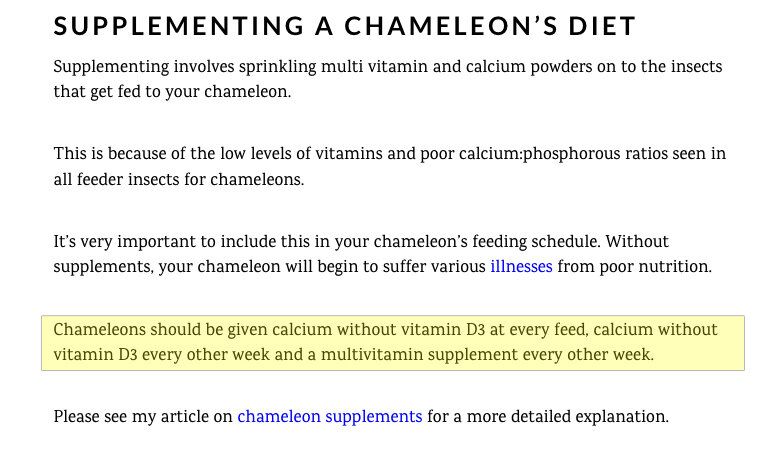ERKleRose
Chameleon Enthusiast
I keep seeing people posting links for them, but if you scroll through their website, they're not giving correct info and different articles have contradicting info from other ones. I don't mind people posting the plant list, as long as it is safe, but I don't like to see it linked for general care. Thoughts?








